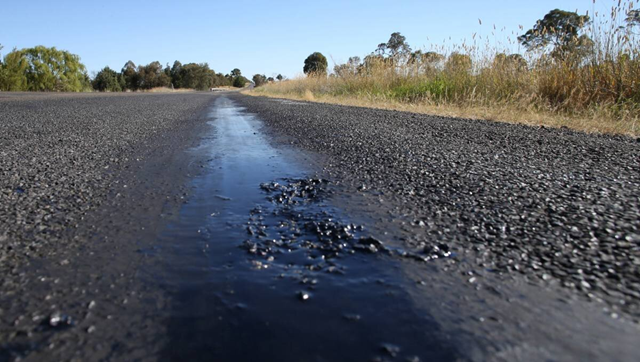
Date: 21 Apr 2023
New strategy to help protect our roads from the impacts of climate change
On Friday 21st April last the Minister for Transport, Eamon Ryan T.D., launched the publication of the “Climate Adaptation Strategy for Regional & Local Roads” Document and Technical Guidance Annexes, setting out how roads across Ireland can be protected and reinforced proactively to withstand the impact of climate change.
The regional and local road network in Ireland consists of approximately 96,000 kms of roads ranging in type from minor roads serving a small number of isolated dwellings in rural settings, to busy inter-urban routes connecting large provincial towns. In total, the network carries almost 55% of all road traffic nationally and it therefore serves critical social and economic functions for citizens and the economy.
More extreme weather conditions like high or low temperatures or flash flooding can have a damaging impact on our roads. Over recent years evidence has shown that there is an increase in flooding, slope instability, bridge damage or pavement melting on our roads that can be attributed to climate change.
In 2019, the Cork County Council led Climate Action Regional Office, in conjunction with and funded by the Department of Transport (DOT), initiated a project to provide guidance to the Local Authority sector on how to improve the climate resilience of the Regional and Local Roads network. The project forms part of Action 297 of the Climate Action Plan 2021.
Minister Ryan said: “Our regional and local road network, operated and managed by Local Authorities provides crucial social and economic functions for both urban and rural communities. However, the assets which make up this network vary greatly in terms of their type, age, and condition. This makes them susceptible to the impacts of climate change and requires a proactive approach to ensure they are protected to withstand them. This Strategy is about doing that proactively so that our regional and local roads continue to be safe and so that we can help shield ourselves, in as far as possible, against major damage and disruption.”
The strategy document provides Local Authorities with a series of measures to ensure that roads are protected from expected climate change into the future.
In summary, these include:
- Identifying and mapping areas most susceptible to climate-related impacts;
- Identifying and mapping Critical Infrastructure Routes (Lifeline Roads) in each Local Authority area;
- Updating existing asset management guidance for drainage, pavement and bridges for climate adaptation;
- Developing new asset management guidance for road networks geotechnical assets;
- Enhancing the Asset Management software system for climate adaptation implementation including the integration of the successful Climate Adaptation Works Prioritisation Methodology;
- Implement a monitoring and review process to ensure the effectiveness of climate adaptation actions
The Climate Adaptation Strategy for Regional & Local Roads Document is a foundation document upon which CARO, in conjunction with DOT, will continue to lead the development of supports to assist the Local Authority Sector in protecting roads against climate change into the future.
The Cork County Council led CARO coordinates and supports local government to lead transformative change and measurable climate action across our cities and counties, working with local authorities to deliver climate policies and behavioural change within their own organisations and empower citizens and enterprise to embrace the need for climate action.
The publication of the Climate Adaptation Strategy for Regional & Local Roads Document marks a major milestone for CARO and is the culmination of over 3 years of working with staff across the Department of Transport, TII, Local Authority roads experts and other key stakeholders to help deliver a sustainable future for our regional and local road network.
The publication can be found by following the link below:
https://www.gov.ie/en/press-release/439de-climate-adaptation-strategy-for-regional-local-roads-document/